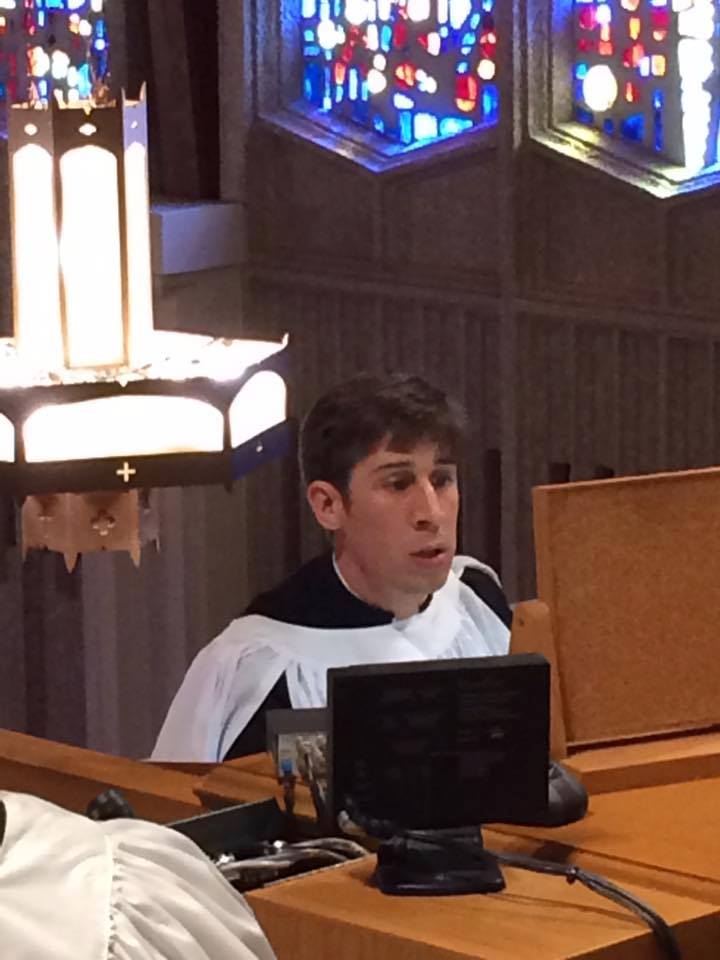By: Mitchell Crawford
How do you get to know someone? It occurs to me the vast majority of relationships we cultivate are interper-sonal in nature. We meet and get to know someone through conversation, through shared experiences. We find common ground. At the root of interpersonal relations is communication: when getting to know someone, we tell others about ourselves and they reciprocate. The experience is shared.
While this is perhaps the most common way to know someone, it’s not the only way. I recall a time when I read composer biography after composer biography in an attempt to assimilate as much knowledge of classical music as I could. It was fascinating. I loved learning about the impulses which ignited the creative process. I delighted in descriptions of places I’d never seen, and of times and conventions which seemed altogether to have vanished. This too, is a way to know someone: after reading a biography, I felt as though I had some small inkling of what Chopin or Beethoven or Liszt or Bach might have been like. We’d never met, but I felt as though the amalgamation of documents and contemporary sources – letters, newspaper articles, reminiscences – gave me some insight into who they were, what they were like.
This past month, I’ve been getting to know Mark Scott. Over the course of his career, Mark amassed a remarkable amount of music and books, a testament to his intellectual capacity and thirst for knowledge. Just here at the church, one can find books in the music office on subjects ranging from Gregorian Chant to African American Spirituals, from shape-note singing to Anglican psalmody, from Presbyterian history and polity to manuals on organ building and design. There are books on church architecture, theology, biographies of renowned composers and organists, reference books, and hymnals from every denomination. The collection is both substantial and impressive, a great literary edifice, built with books instead of bricks.
I never met Mark, but in some ways, I feel as though I have. Of course, it helps that so many of his friends and colleagues have graciously offered reminiscences and memories – everyone has a classic Mark Scott story, and I assure you he had no shortage of admirers! – but beyond these, I feel as though I’ve learned about him simply exploring his
library here at church, an enduring record of his remarkable tenure at St. Stephen. Two themes emerge: first, he was committed to the church. Second, he was devoted to music.
As I wind down my first month at St. Stephen, sitting in the office he occupied for decades, I am grateful for Mark Scott and his legacy. I am reminded of Jesus’ parable, found in the Gospels of both Matthew and Luke, about building on solid ground. Jesus says, “Everyone who hears these words of mine and does them will be like a wise man who built his house on the rock. And the rain fell, and the floods came, and the winds blew and beat on that house, but it did not fall, because it had been founded on the rock. And everyone who hears these words of mine and does not do them will be like a foolish man who built his house on the sand. And the rain fell, and the floods came, and the winds blew and beat against that house, and it fell, and great was the fall of it.” [Matthew 7: 24–27]
Friends, the music program here at St. Stephen is built on solid ground. As I begin my tenure at this glorious church and with this loving congregation, my hope is to continue to build on that strong foundation. Praise be to God!


Mitchell, you have taken a position occupied by only two men over the last sixty years.
I welcome your talents to carry on our tradition in the glorious music of the Church.
To God be the glory.
Thanks for sharing those statements with all of us, Mitchell.
Comments are closed.